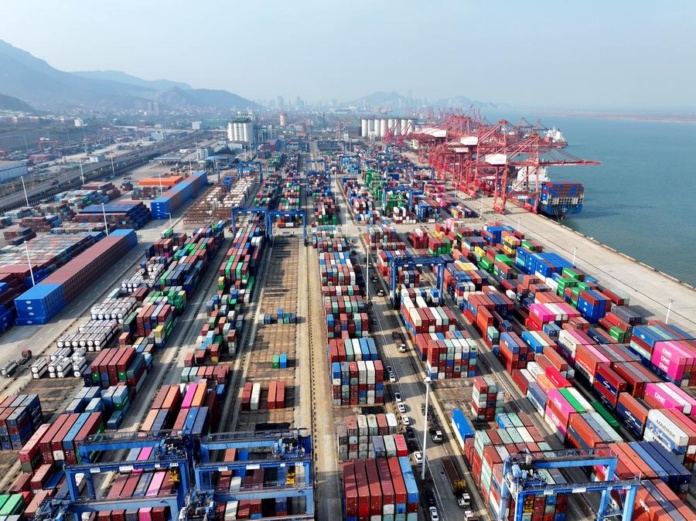The United States may soon ease the record-high tariffs placed on Chinese goods, said Treasury Secretary Scott Bessent on Tuesday. This development comes amid growing pressure to resolve a trade standoff that has disrupted global markets.
Speaking privately at a JPMorgan Chase event during the International Monetary Fund and World Bank Spring Meetings in Washington, Bessent described the current tariff levels as a form of “reciprocal trade embargo.” However, he expressed confidence that both Washington and Beijing will step back from the brink.
Since President Donald Trump’s return to the White House in January, the U.S. has imposed additional tariffs of up to 145% on a range of Chinese imports. These include penalties linked to China’s alleged involvement in fentanyl trafficking and what Washington calls unfair trade practices.
Tariffs Set to “Come Down Substantially,” Says Trump
President Trump confirmed on Tuesday that these tariffs are “very high” and signaled that they would “come down substantially.” However, he also noted that the final tariff levels “won’t be zero,” indicating that trade restrictions will remain in some form.
China has responded with its own sweeping countermeasures, hitting American goods with tariffs of up to 125%. This tit-for-tat exchange has raised fears of a prolonged trade conflict between the world’s two largest economies.
Market Reacts to De-escalation Hopes
Bessent’s comments at the JPMorgan event were not open to the press, but reports of his remarks caused a noticeable bounce in U.S. stock markets. Major indexes rose, reflecting investor optimism that the tariff battle may soon ease.
The event took place alongside the IMF and World Bank meetings, which drew finance ministers and central bankers from around the world. Many were watching closely for signs of progress in U.S.-China trade talks.
US and China Still Talking Trade
Despite the tough measures, both governments appear willing to negotiate. Bessent emphasized that the U.S. is not seeking to break off trade ties with China. Instead, he said the aim is to make the trade relationship more balanced and fair.
“There is still a lot of work to do with China,” he told attendees. He also noted that container bookings between the two countries have dropped recently, signaling the real-world impact of rising trade barriers.
White House Optimistic About Future Deal
White House Press Secretary Karoline Leavitt echoed Bessent’s tone of cautious optimism. Speaking to reporters, she said the administration is “doing very well in respect to a potential trade deal with China.”
She added that President Trump and his team are “setting the stage for a deal,” and that negotiations are heading in the right direction. “Everyone involved wants this deal to happen,” Leavitt stated.
Global Focus on Washington Talks
With global economic leaders gathered in Washington this week, the spotlight remains on the U.S.-China trade relationship. Observers are eager to see whether Trump’s tariffs—among the highest in recent history—will be rolled back as part of a broader deal.
Economic experts say a reduction in tariffs would benefit both countries and bring relief to businesses facing higher costs.


